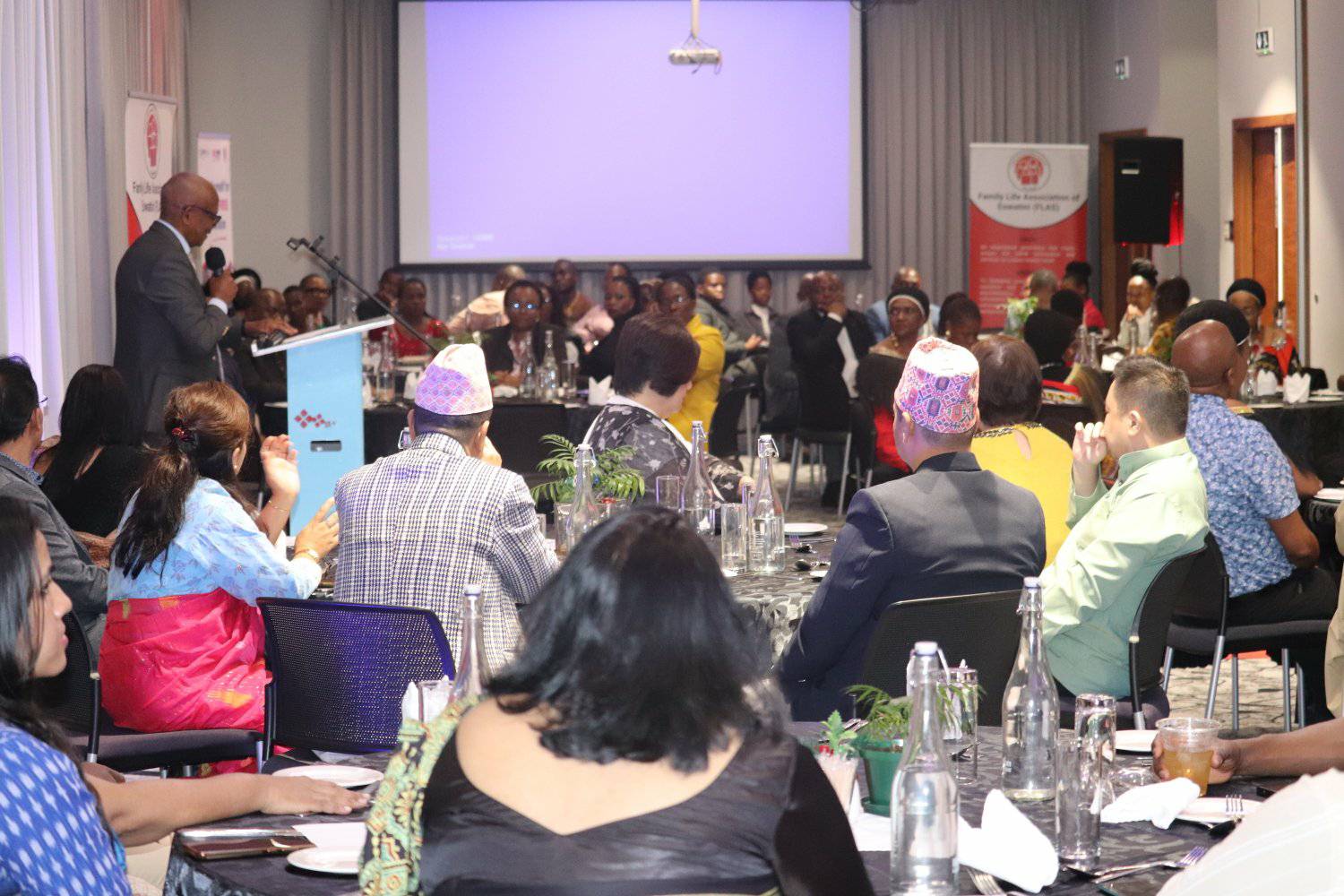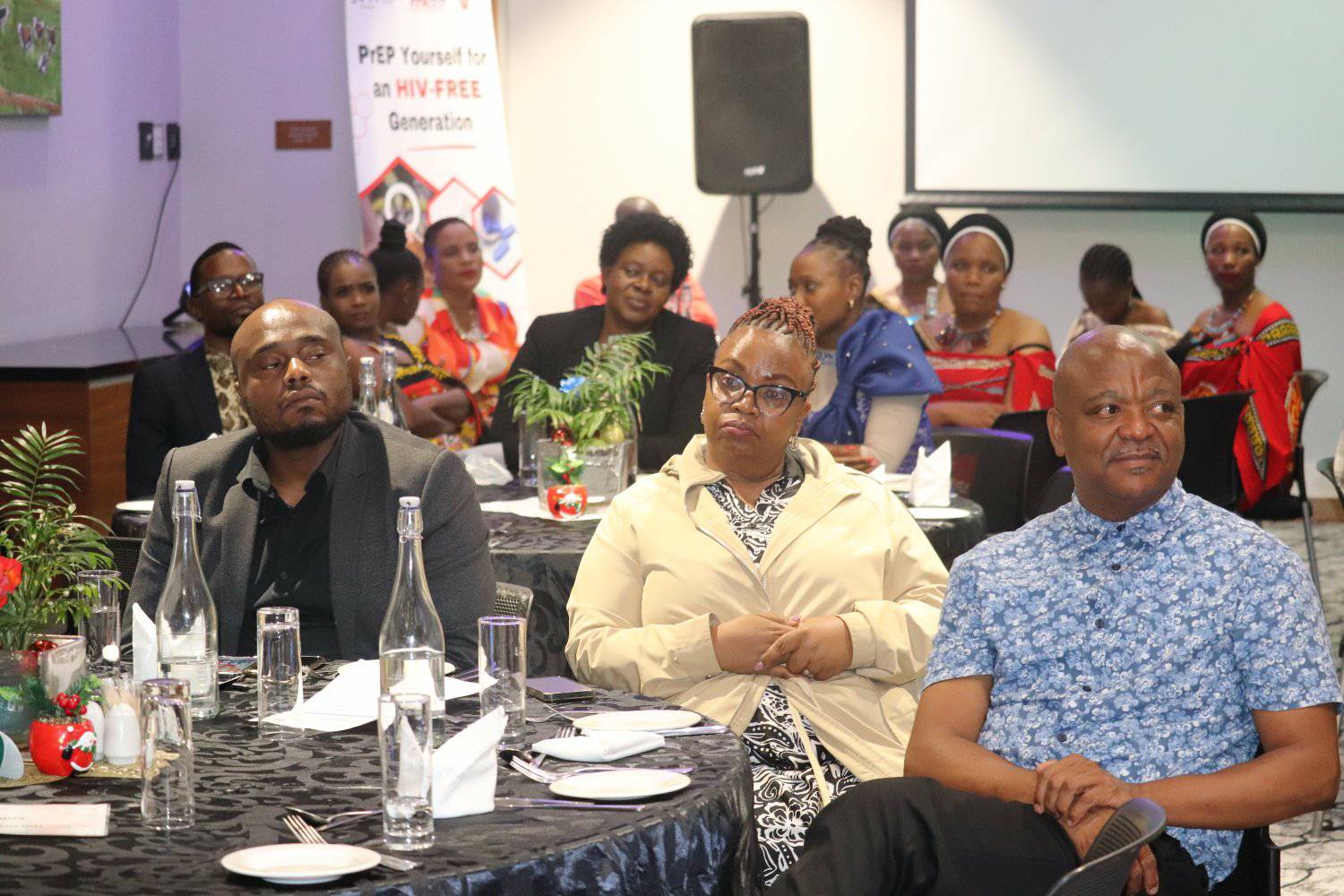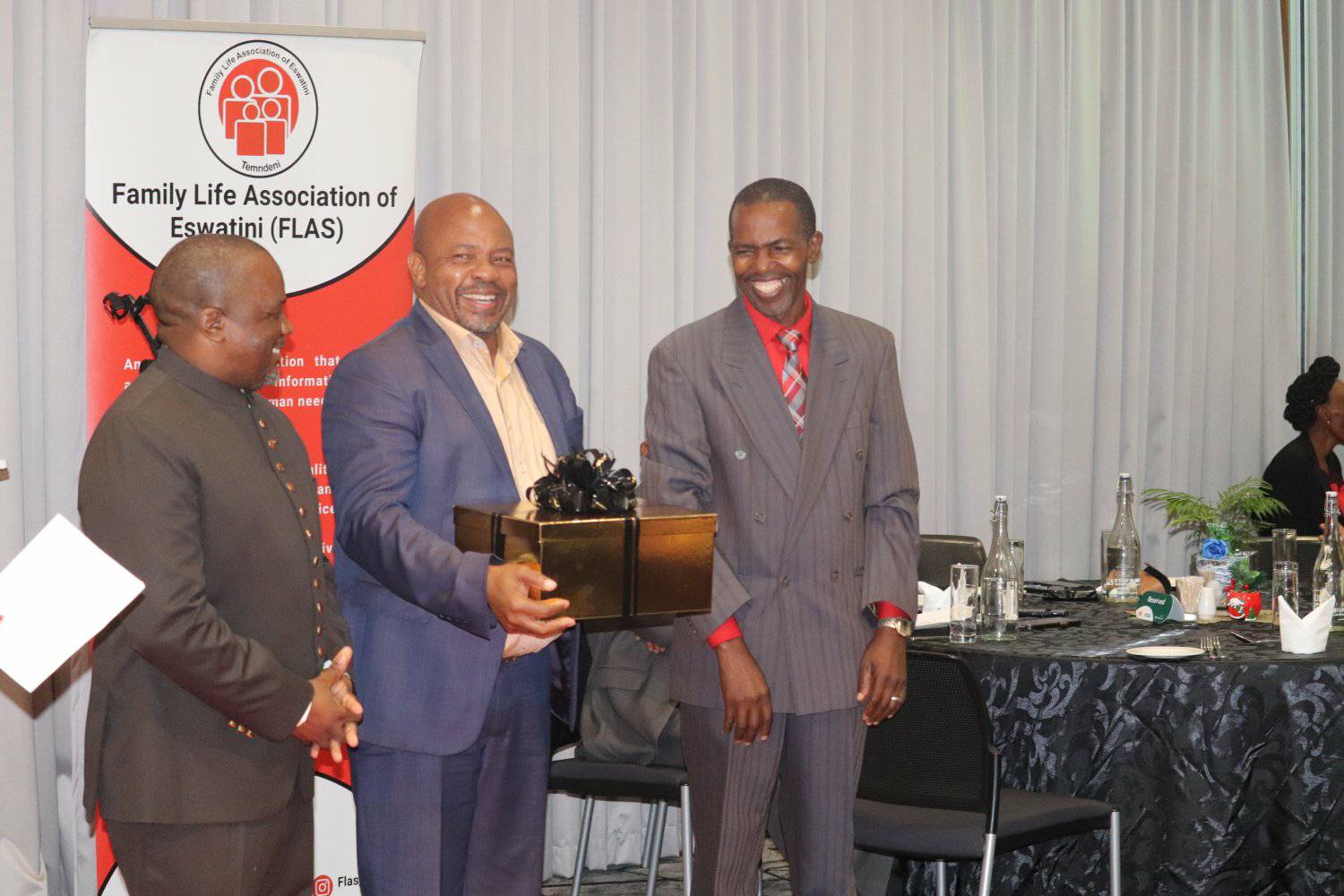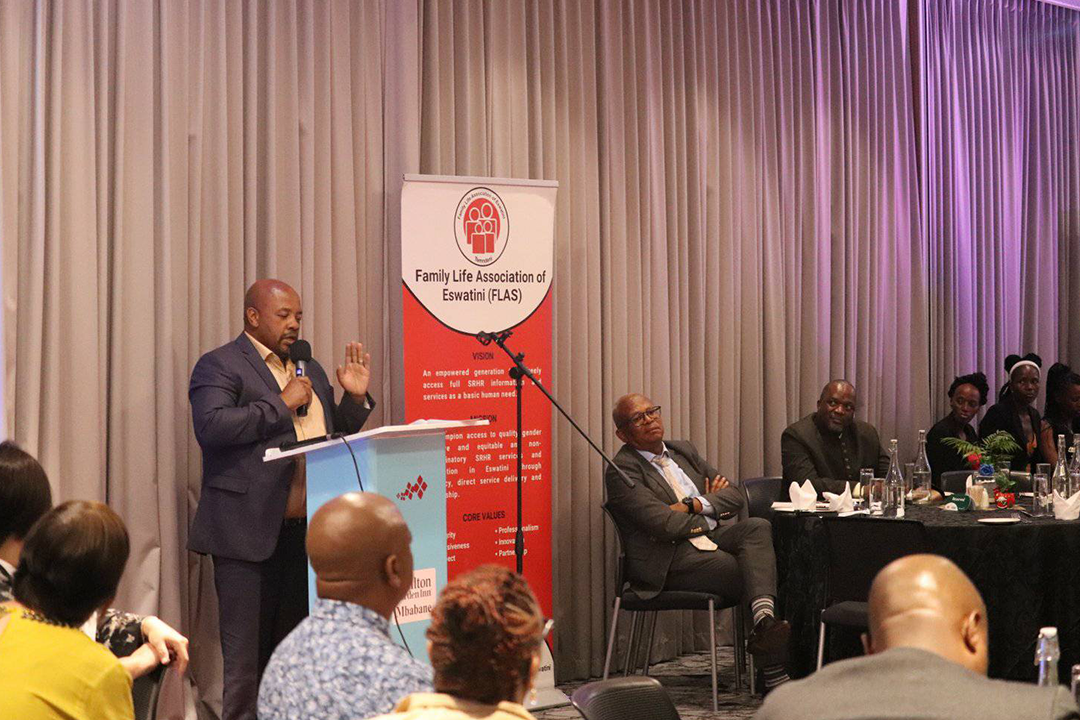BY PHESHEYA IAN KUNENE
MBABANE – Minister of Health Mduduzi Matsebula has praised the Family Life Association of Swaziland (FLAS) for its significant contributions to improving Sexual Reproductive Health and Rights (SRHR) in Eswatini.
Speaking at a special dinner at the Hilton Garden Inn Hotel, Matsebula highlighted FLAS’ role in driving positive change in the country’s health landscape and its innovative approach to tackling SRHR challenges.

“FLAS has been a driving force in our efforts to improve sexual and reproductive health. Their tireless work has not only provided essential services but has also transformed how we approach these critical issues. Their leadership and commitment have been invaluable in shaping policies and practices that have improved the lives of many,” Matsebula said.
The special dinner, attended by key stakeholders from across the globe, saw representation from India, including Nisha Jagdish, the Director of Gender and Rights at Family Planning Association of India (FPAI), as well as Margaret Tembe, Head of the UNFPA Office in Eswatini. FLAS President Ambrose Maseko was also present, underscoring the importance of such partnerships in advancing SRHR work in Eswatini.
Matsebula specifically commended FLAS’ integrated approach to SRHR and HIV prevention, which has made a significant impact on public health in Eswatini. He noted that FLAS operates both static and mobile clinics, reaching underserved communities that would otherwise lack access to healthcare. Through these clinics, FLAS delivers vital services ranging from family planning to HIV testing, treatment, and prevention.

“The integration of SRHR and HIV services is a game-changer,” Matsebula remarked. “By addressing these issues together, FLAS has ensured that we are tackling the root causes of many health challenges faced by our population.”
The Minister also recognised the success of FLAS’ mobile clinics, which have played an essential role in reaching marginalized groups. Through the support of the United Nations Population Fund (UNFPA), FLAS has been able to extend its services to remote areas, where access to healthcare is limited.
“The reach of FLAS’ services is extraordinary. Their mobile clinics have made a tangible difference in the lives of those who are often left out of the healthcare system,” Matsebula said.
Addressing the challenges of supply chain management for essential medicines and family planning commodities, the Minister acknowledged that stock shortages have impacted service delivery. However, he expressed his gratitude for the support of international partners like UNFPA, which have helped ensure that these commodities are available when needed most.

“Thanks to strong partnerships with organizations such as UNFPA and IPPF, we have been able to navigate these challenges and continue providing essential services to our people,” Matsebula stated. “These partnerships have been a lifeline in ensuring the availability of family planning commodities during times of need.”
The Minister also expressed concern about the increasing unmet need for family planning in Eswatini, which has contributed to high rates of teenage pregnancies. He stressed that it is crucial to ensure that resources are available to address this gap and to continue promoting behavior change to improve family planning practices.
“We have made significant progress, but there is still much to be done. We must ensure that family planning resources are available to everyone who needs them,” Matsebula said. “It’s also essential to focus on changing behaviors and educating the population, especially our youth, about the importance of family planning and sexual health.”

Matsebula also emphasised the government’s commitment to improving maternal health, reducing neonatal and infant mortality rates, and expanding access to family planning. He pointed out that the country’s maternal mortality rates remain a key priority for the Ministry of Health, and he reiterated that family planning is at the core of the government’s strategy for reducing maternal deaths and promoting women’s health.
“Access to family planning is not just about reducing maternal deaths, it’s also about empowering women and improving overall health outcomes,” he said.
Looking to the future, Matsebula revealed that the government is in discussions to review the funding and support provided to FLAS. He stated that the Ministry is exploring ways to increase FLAS’ capacity to reach more young people and mothers with high-quality SRHR services.
“As we look ahead, it is crucial that we continue to strengthen our partnerships and ensure that organizations like FLAS have the resources they need to succeed,” Matsebula said. “By reviewing funding and support, we aim to enhance FLAS’ ability to serve even more people across the country.”
In closing, the Minister urged all stakeholders to join forces in addressing the challenges faced by the SRHR sector, especially in light of declining global funding for development programs. He encouraged a collective effort to sustain and expand the progress made in SRHR and HIV prevention in Eswatini.
“While the road ahead may be challenging, I am confident that through continued collaboration, we will meet our SRHR goals. FLAS is essential to this journey, and with your ongoing support, we will continue to make strides in improving the health and well-being of our people,” Matsebula concluded.






